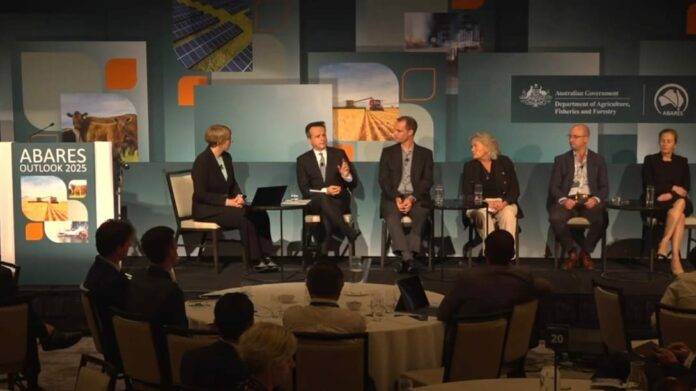The ABARES Outlook 2025 forum highlighted the challenges facing Australia in navigating the agricultural trade environment in an era of increased protectionism, a weaker World Trade Organization, and political turbulence. The forum emphasized the need for new and creative strategies to address these challenges and ensure the continued success of Australia’s agricultural trade sector.
During the Fields of Influence session on agricultural trade, global giants, and protectionism, Australian Centre for International Trade and Investment executive director Pru Gordon expressed concern over the impact of US President Donald Trump’s “fair and reciprocal plan” on the global trading system. This plan, announced in February, raised questions about the future of the WTO and the rules-based trading system.
Dr. Gordon stressed the importance of collaboration between the government and the private sector to navigate these challenges effectively. She emphasized the need for a new approach to engagement and information sharing to ensure Australia’s preparedness for the changing trade landscape.
Keynote speaker Vangelis Vitalis from the New Zealand Ministry for Foreign Affairs and Trade highlighted the long-term inaction by the international community in advancing global trade agreements. He noted the gradual erosion of the rules-based system since 2015 and the challenges posed by the current state of the WTO.
Despite these challenges, Vitalis expressed optimism that countries like Australia and New Zealand could find solutions to strengthen the rules-based trade system. He emphasized the need for creative thinking and collaboration to address the current deficiencies in the global trading system.
As a member of the G20 and a significant exporter of agricultural products, Australia has the potential to influence positive changes in the global trade environment. Vitalis encouraged Australia to consider new approaches to forming coalitions and promoting collaboration within the WTO while supporting the multilateral trading system.
World Farmers’ Organisation vice president Oceania Fiona Simson highlighted the importance of engaging with the WTO and exploring alternative forums for promoting agricultural trade collaboration. She emphasized the need for ongoing dialogue and cooperation to address the challenges facing the agricultural sector.
The ABARES Outlook event, held in Canberra on March 4 and 5, brought together industry leaders and government officials to discuss the future of agriculture, fisheries, and forestry industries. In addition to Pru Gordon, Vangelis Vitalis, and Fiona Simson, speakers included Australian Meat Industry Council interim CEO Tim Ryan, ABARES director of agricultural trade research James Fell, and Department of Agriculture, Fisheries, and Forestry deputy secretary Tina Hutchison.
Overall, the forum highlighted the need for proactive and collaborative approaches to address the challenges facing the agricultural trade sector in the current global trade environment. By working together and exploring new strategies, Australia can navigate the complexities of international trade and ensure the continued success of its agricultural industry.



